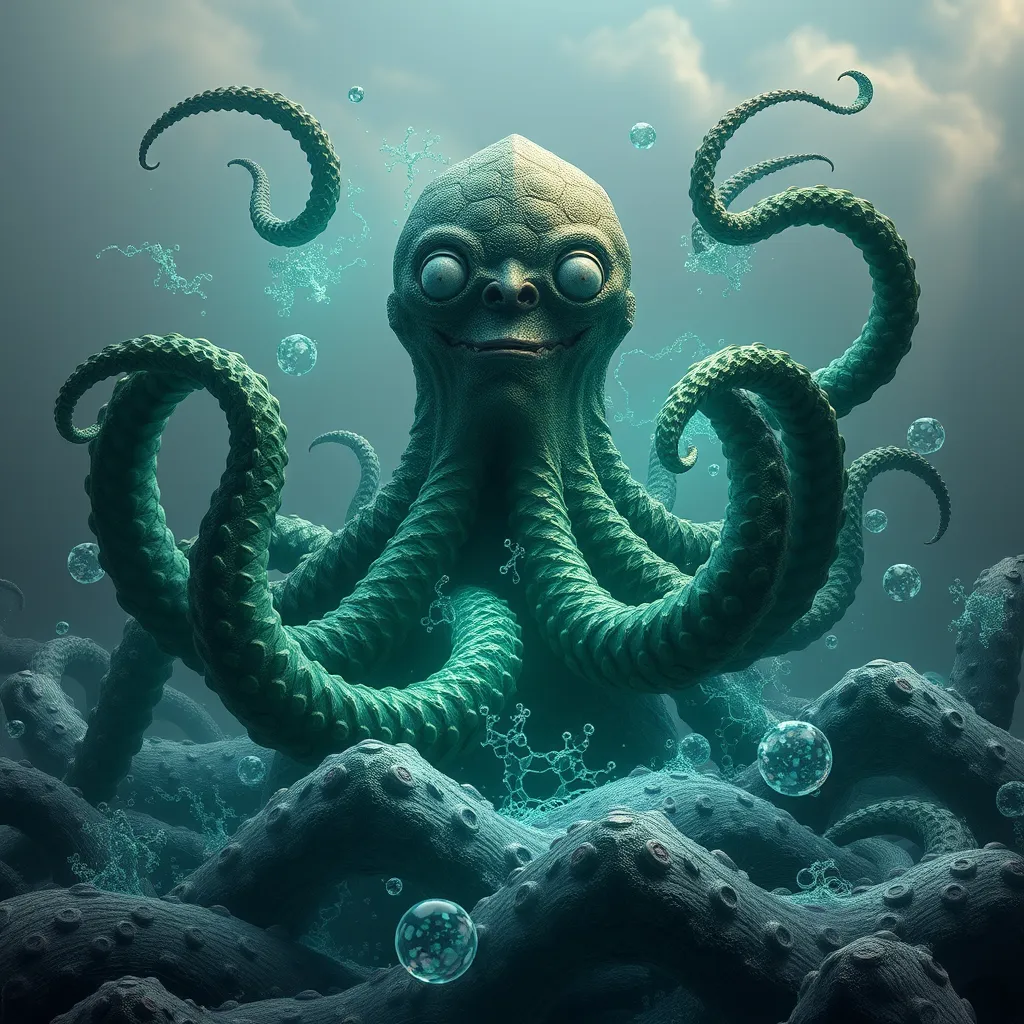The Kraken’s Influence on Modern Science: Exploring how the Monster Inspired Scientific Exploration and Discoveries
I. Introduction
The Kraken, a legendary sea monster originating from Scandinavian folklore, has captured the imagination of many throughout history. Typically described as a gigantic squid or octopus, the Kraken is said to dwell off the coasts of Norway and Greenland, terrorizing sailors and dragging entire ships into the depths of the ocean. Its origins can be traced back to the 13th century, with the first known literary reference appearing in Francesco Negri’s travelogue in 1700. This mythical creature has not only become a staple in popular culture but has also had a profound impact on scientific exploration.
The purpose of this article is to examine how the myth of the Kraken has influenced scientific inquiry and exploration, particularly in the fields of marine biology, oceanography, and conservation. By exploring the intersection of myth and science, we can better understand the ways in which folklore can inspire real-world discoveries and advancements.
II. The Kraken in Historical Context
A. The Kraken in Folklore and Literature
The Kraken has been referenced in various forms of folklore and literature. From the writings of Alfred Lord Tennyson to modern adaptations in films and books, the Kraken has evolved into a symbol of the unknown. These stories often depict the creature as a powerful force of nature, embodying humanity’s fear of the sea’s vastness and mystery.
B. Historical Accounts of Sea Monsters and Their Implications for Science
Throughout history, sailors have reported encounters with sea monsters, leading to a plethora of accounts detailing their size, shape, and behavior. While many of these tales were likely exaggerated or fabricated, they reflect the limited understanding of marine life during these times. The descriptions of such creatures often spurred curiosity and exploration, leading to early scientific inquiries into the ocean’s depths.
III. The Intersection of Myth and Science
A. How Myths Can Inspire Scientific Inquiry
Myths and legends have the power to ignite curiosity and inspire individuals to seek answers. The Kraken legend, with its tantalizing implications of monstrous sea life, encouraged early explorers to venture further into the unknown, driven by a desire to uncover the truth behind these creatures. This pursuit often resulted in significant scientific discoveries that contributed to our understanding of marine ecosystems.
B. Examples of How the Kraken Prompted Exploration of Marine Biology
- Early explorations of the deep sea were motivated by tales of giant sea creatures, leading to the discovery of previously unknown species.
- The search for the Kraken contributed to the development of underwater research techniques, including the use of submersibles and remotely operated vehicles (ROVs).
- Reports of large squids and octopuses led to targeted studies that expanded our knowledge of cephalopod behavior and biology.
IV. The Role of the Kraken in Oceanography
A. The Influence of Legendary Sea Creatures on the Development of Oceanography
The fascination with sea monsters like the Kraken has historically played a role in the development of oceanographic science. The quest to understand these mythical creatures motivated scientists to explore oceanic depths and gather data about marine environments.
B. Key Discoveries Inspired by the Search for the Kraken
- The identification of the giant squid (Architeuthis dux) was a direct result of the curiosity sparked by Kraken legends.
- Innovations in marine technology, such as sonar and deep-sea submersibles, were developed to explore the ocean’s depths, facilitating groundbreaking discoveries in oceanography.
- Research into bioluminescence and deep-sea ecosystems has been enhanced by the interest generated by tales of luminous sea creatures.
V. Modern Cryptozoology and the Kraken
A. The Study of Cryptids and Its Scientific Relevance
Cryptozoology, the study of animals whose existence is not substantiated by mainstream science, often focuses on legendary creatures like the Kraken. While many dismiss cryptozoology as pseudoscience, it can serve as a foundation for legitimate scientific exploration by encouraging investigations into unexplored habitats and species.
B. Influence of the Kraken on Contemporary Cryptozoological Research
Modern cryptozoologists frequently reference the Kraken in their research, using it as a case study for understanding the potential existence of undiscovered marine life. This has led to:
- Increased funding for marine exploration missions aimed at discovering new species.
- Collaborations between cryptozoologists and marine biologists to investigate reports of unusual marine phenomena.
- Public interest in the ocean’s mysteries, which often leads to greater awareness and funding for marine conservation efforts.
VI. The Kraken’s Impact on Marine Conservation
A. The Connection Between Mythical Creatures and Modern Conservation Efforts
The Kraken myth has played a surprising role in marine conservation. The allure of legendary creatures can inspire public interest and engagement in ocean conservation initiatives. As people become captivated by these stories, they are more likely to support efforts to protect marine environments.
B. Case Studies of Marine Conservation Initiatives Inspired by the Kraken Myth
- The “Kraken Project,” a marine conservation initiative focused on protecting deep-sea ecosystems, utilizes the Kraken myth to raise awareness about the importance of preserving underwater habitats.
- Cultural programs that incorporate local mythology, including the Kraken, have been developed to educate communities about sustainable fishing practices and ocean stewardship.
- Documentaries and media productions about the Kraken have sparked discussions about the impact of climate change on marine life, leading to grassroots conservation movements.
VII. The Kraken in Popular Culture and Its Scientific Implications
A. Representation of the Kraken in Modern Media
The Kraken has been prominently featured in modern media, from movies like “Pirates of the Caribbean” to video games and literature. These representations often emphasize the creature’s mythical nature while sparking curiosity about the real-world marine life that may have inspired such legends.
B. How Popular Culture Shapes Public Interest in Marine Science
The portrayal of the Kraken in popular culture has significant implications for public interest in marine science. These representations often lead to:
- Increased enrollment in marine biology programs and interest in oceanography.
- Heightened awareness of marine conservation issues among the general public.
- Encouragement for scientific exploration and the pursuit of knowledge about the ocean.
VIII. Conclusion
In summary, the Kraken has had a profound influence on scientific exploration and inquiry. From inspiring early explorers to shaping modern marine conservation efforts, this legendary creature serves as a reminder of the interconnectedness of myth and science. The fascination with the Kraken not only drives curiosity about the ocean’s depths but also highlights the essential role that myths play in inspiring scientific discovery. As we continue to explore the mysteries of the sea, the legacy of the Kraken will undoubtedly endure, reminding us of the wonders that still await us beneath the waves.




